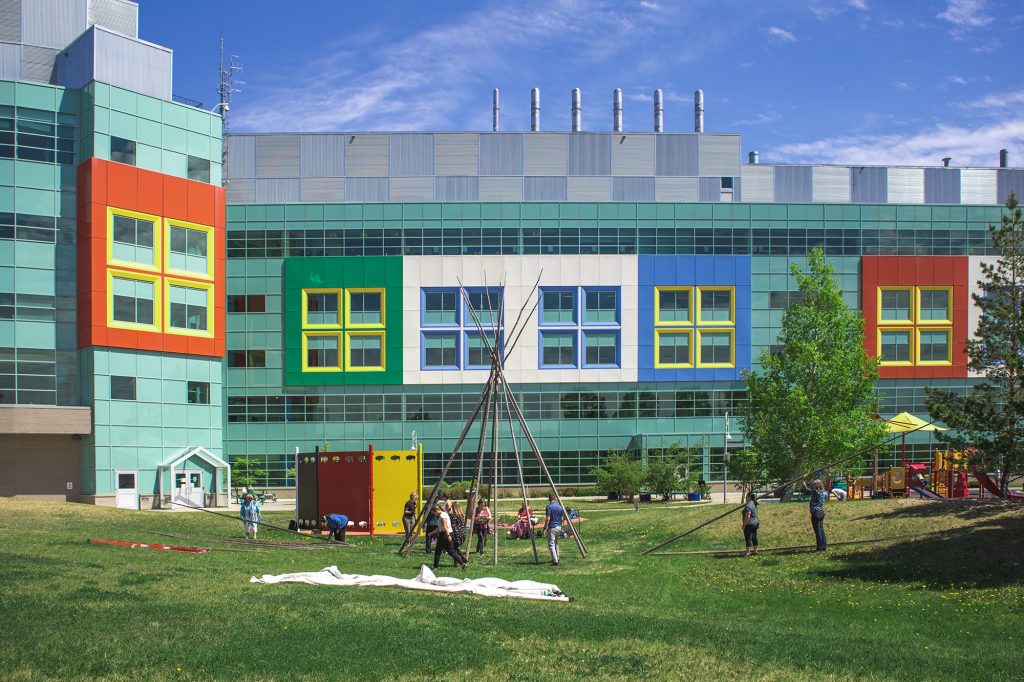
U of C awarded $125 million, the largest research grant in its history
By Shefali Rai, June 29 2023—
On April 28, the Government of Canada announced an investment of $125 million for the One Child Every Child initiative at the University of Calgary. This is the largest research grant ever awarded to a university in Alberta.
This initiative aims to transform the overall health and wellness of all children across Canada by bringing together researchers, health-care providers, educators, equity-deserving community collaborators and Indigenous community partners.
“We developed the grassroots of this initiative here in Calgary, which then evolved into a provincial and national partnership,” said Dr. Susa Benseler, director of the Alberta Children’s Hospital Research Institute at the U of C.

U of C first launched its child health and wellness research strategy in 2020. In conjunction with this strategy, the new One Child Every Child initiative focuses on three main themes: Better Beginnings, Precision Health and Wellness and Vulnerable to Thriving. Alongside these themes, a parallel Indigenous strategy to empower Indigenous scholars — aligned with ii’ taa’poh’to’p — is at the forefront to address the unique challenges and opportunities for Indigenous children and mothers.
“The Indigenous parallel path has set its own priorities and this is the first self-determined and indigenous-methodology driven accelerator there ever has been,” said Benseler.
The challenge of utilizing this grant to its full potential, however, is dependent entirely on creating a massive culture shift from independent achievements to fostering an entire community of collaborators centred on child health and wellness.
“Right now investigators are running in their own lane,” said Dr. Benseler.
The One Child Every Child initiative plans to change the way child health and research is approached by sharing knowledge among partners and building a community anchored in Indigenous health equity, inclusive governance, diversity and inclusion.
“We want to develop a path that anchors EDI in everything we are doing,” said Benseler.
By partnering with more than 150 community organizations, hospitals, institutes and universities — Children’s Healthcare Canada, the Pediatric Chairs of Canada, the Canadian Institutes of Health Research, Alberta Children’s Hospital Foundation, University of Alberta, University of Lethbridge and Athabasca University to name a few — this initiative urges collaboration at every level.
“What is the partnership that we want to have to address this question in a holistic way?” Benseler continued.
Benseler provided thoughts on how the first theme of the policy regarding Better Beginnings — which is responsible for improving health and wellness of mothers and newborns — is an excellent model on how this initiative can bridge gaps in research translation and drive collaboration.
“How are children in Indigenous communities cared for, [alongside] examining what is the basic understanding of placental biology, all anchored in the P3 cohort [research] study, which looks at both social and biomedical determinants of prematurity and child health outcomes,” said Benseler.
“Pairing biomedical scientists with social scientists to address questions, while bringing in data integrations, will take all of those areas of strength and support them.”
Ultimately, Benseler believes this newly secured grant has the potential to globally impact the lives of children and families.
“I really hope this investment will inspire the next generation of child health researchers, and that this concept goes beyond the duration of the grant,” said Benseler.
More information on the One Child Every Child initiative can be found on the U of C website.
